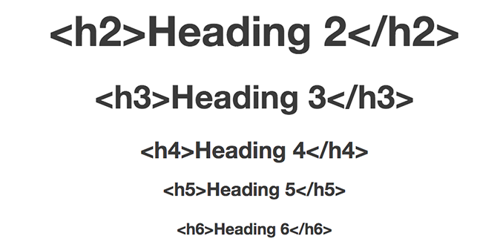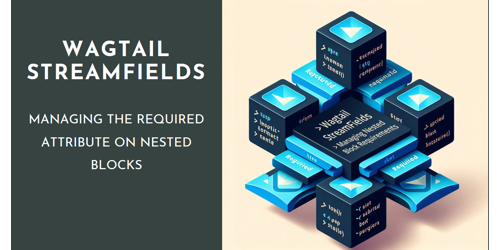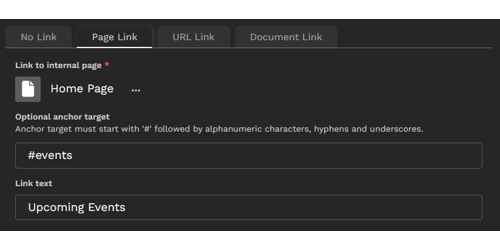Tech Blog
Here I'll be sharing insights from my professional experiences and studies in data science and web development. There'll be plenty of Wagtail, Django and Python, a bit of JavaScript and CSS thrown in, and more on data science & engineering. There might even be a bit of time for some project management and business analysis too.
I'll also provide insights into how this site was made, as well as code examples and thoughts on how those could be further developed.
Feel free to leave questions or comments at the bottom of each post - I just ask people to create an account to filter out the spammers. You won't receive any unsolicited communication or find your email sold to a marketing list.

Add Heading Blocks with Anchor Targets in Wagtail
Wagtail’s Draftail rich text editor lacks any way to add anchor targets to heading tags so that you can link back to that position on the page from elsewhere.
In this example, we'll create a simple StructBlock to add to your Streamfields that includes heading size, alignment and an optional anchor identifier. We'll use ChoiceBlocks for the field values, a custom template with some basic logic and also include some validation to ensure the entered anchor target is a valid slug. We'll also make use of declaring child blocks as local variables to allow overriding default values when using this block as the child block of another StructBlock.
This is a good example to work through if you're starting out with Wagtail and getting used to working with blocks and StreamFields.
In this example, we'll create a simple StructBlock to add to your Streamfields that includes heading size, alignment and an optional anchor identifier. We'll use ChoiceBlocks for the field values, a custom template with some basic logic and also include some validation to ensure the entered anchor target is a valid slug. We'll also make use of declaring child blocks as local variables to allow overriding default values when using this block as the child block of another StructBlock.
This is a good example to work through if you're starting out with Wagtail and getting used to working with blocks and StreamFields.

Wagtail Streamfields - Propagating the `required` Attribute on Nested Blocks
When adding blocks to a custom Wagtail StreamField StructBlock, whether or not those blocks are required may depend on the required status set in the StructBlock constructor kwargs.
Unlike Django form fields however, in Wagtail's Block class (from which all blocks derive), the required attribute is a read-only property. This means it can only be set in the class declaration rather than during instantiation.
This article presents a straightforward workaround, eliminating the necessity for extensive validation code in each affected block.
Unlike Django form fields however, in Wagtail's Block class (from which all blocks derive), the required attribute is a read-only property. This means it can only be set in the class declaration rather than during instantiation.
This article presents a straightforward workaround, eliminating the necessity for extensive validation code in each affected block.

Build an Intuitive Link StructBlock in Wagtail: Simplifying Link Management for Content Editors
Learn how to create a reusable StructBlock in Wagtail that simplifies the management of different link types.
Develop an intuitive, compact, and interactive tabbed interface that empowers content editors to seamlessly select link type, path, and text, all while optimizing page space within the editing interface. Implement a common method to retrieve URL and text for the link regardless of link type, including custom link types.
We'll cover concepts essential for achieving our goal, such as transforming Django's radio select widget into a tab group, constructing an interactive panel interface within the StructBlock using a custom Telepath class, dynamically adding child blocks based on initial parameters, integrating data attributes into block forms, custom StructValue classes and designing adaptable choice blocks.
Develop an intuitive, compact, and interactive tabbed interface that empowers content editors to seamlessly select link type, path, and text, all while optimizing page space within the editing interface. Implement a common method to retrieve URL and text for the link regardless of link type, including custom link types.
We'll cover concepts essential for achieving our goal, such as transforming Django's radio select widget into a tab group, constructing an interactive panel interface within the StructBlock using a custom Telepath class, dynamically adding child blocks based on initial parameters, integrating data attributes into block forms, custom StructValue classes and designing adaptable choice blocks.
